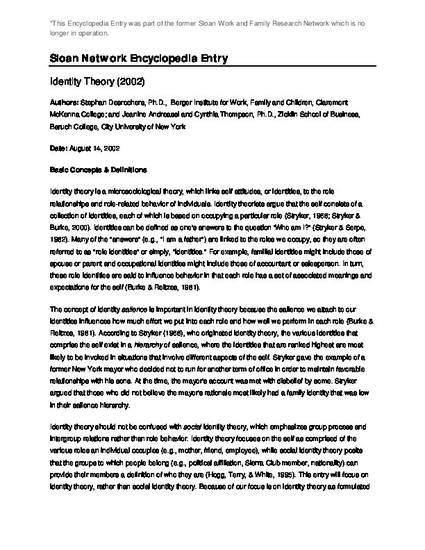
Basic Concepts & Definitions:
Identity theory is a microsociological theory, which links self attitudes, or identities, to the role relationships and role-related behavior of individuals. Identity theorists argue that the self consists of a collection of identities, each of which is based on occupying a particular role (Stryker, 1968; Stryker & Burke, 2000). Identities can be defined as one's answers to the question 'Who am I?" (Stryker & Serpe, 1982). Many of the "answers" (e.g., "I am a father") are linked to the roles we occupy, so they are often referred to as "role identities" or simply, "identities." For example, familial identities might include those of spouse or parent and occupational identities might include those of accountant or salesperson. In turn, these role identities are said to influence behavior in that each role has a set of associated meanings and expectations for the self (Burke & Reitzes, 1981).
Available at: http://works.bepress.com/jeanine_andreassi/10/

This Encyclopedia Entry was part of the former Sloan Work and Family Research Network which is no longer in operation.
Material in this article also appears in:
Desrochers, Stephan, Jeanine Andreassi, and Cynthia Thompson. "Identity Theory." Organization Management Journal (Palgrave Macmillan Ltd.) 1.1 (2004): 61-69.